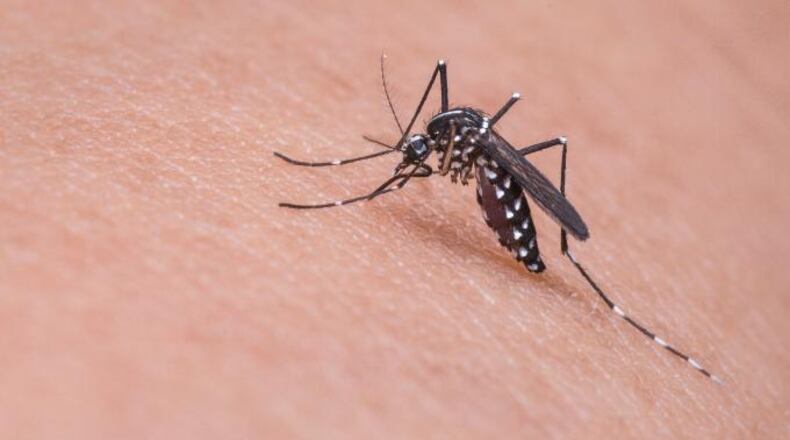Georgia’s Department of Public Health has confirmed six West Nile virus cases in the state, with one resulting in the death of an elderly man, as of Friday. Cases in July and August are reported by five local health departments around the state hat include Augusta, Dalton, Fulton, Macon and Valdosta, according to DPH.
West Nile virus is spread by mosquitoes that have bitten animals such as birds already carrying the illness. According to DPH, West Nile is tracked by the department using surveillance information that identifies birds, horses and mosquitoes that are positive for the virus. The tracking helps determine the areas where people are most at risk.
Prevention programs are then started in high-risk areas, with local governments funding and carrying out mosquito spraying.
David Swann, who lives in Hawaii, had plans to visit his mother, Dorothy, 87, of Smyrna, in early September. When he arrived on the mainland from Hawaii, he found his mom experiencing high fever, chills and unable to move as she normally does. She was hospitalized on Sept. 5 and Swann has extended his stay.
Swann said that on the same floor of Emory Saint Joseph’s Hospital in Sandy Springs where his mother is being treated, there is another elderly man suffering from West Nile with severe illness.
He said he is speaking out to warn others of the disease.
“I’m just trying to help other people avoid getting this,” Swann said. " There’s a lot of old people and maybe lives could be saved.”
In the Southeast region, others states reporting cases of West Nile include Louisiana with 31 cases and five deaths, North Carolina with four cases, Mississippi with two cases and Alabama, Florida, South Carolina and Tennessee have each reported one case.
Of Georgia’s six cases reported in 2022, two cases have been found in “presumptive viremic blood donors”, or people who had no symptoms of West Nile when they donated blood, but whose blood tested positive when tested for the virus.
According to the CDC, most people infected with West Nile virus do not experience any symptoms. With severe cases, affecting 1 in 150 people, individuals’ nervous systems are involved, resulting in inflammation of the brain, spinal cord and membranes that surround the brain.
Other symptoms include high fever, headache, neck stiffness, stupor, disorientation, coma, tremors, convulsions, muscle weakness, vision loss, numbness and paralysis. People ages 60 and up have a higher risk for severe illness if infected.
DPH recommends removing water-holding containers, changing water frequently in pet dishes, changing bird bath water at least twice a week and avoiding using saucers under outdoor potted plants to reduce mosquito breeding.
“It’s important to keep in mind that mosquitoes don’t know county or community boundaries so an individual may live in one county but may have been bitten by an infected mosquito miles and miles away,” said DPH spokesperson Nancy Nydam, in a statement to The Atlanta Journal-Constitution.
“If the virus is detected in any county or community, that does, indeed, indicate that the virus is circulating and precautions should be taken, not just for one neighborhood but for the general area and region.”
The Atlanta Journal-Constitution and Report for America are partnering to add more journalists to cover topics important to our community. Please help us fund this important work at ajc.com/give
COVID NUMBERS
150: Number of COVID-19 deaths reported in Georgia for the week ending Sept. 14, 2022.
6th: Georgia’s rank among 50 states and Washington, D.C. and Puerto Rico for the highest number of COVID-19 deaths per capita that week.
65+: the age group with the most deaths reported for the week ending Sept. 12, 2022, with 81.6% of that week’s deaths.
Sources: U.S. Centers for Disease Control and Prevention State Profile Report for the week ending Sept.14, 2022 and Georgia Department of Public Health COVID-19 Trends for the week ending Sept. 12, 2022.
About the Author
The Latest
Featured


